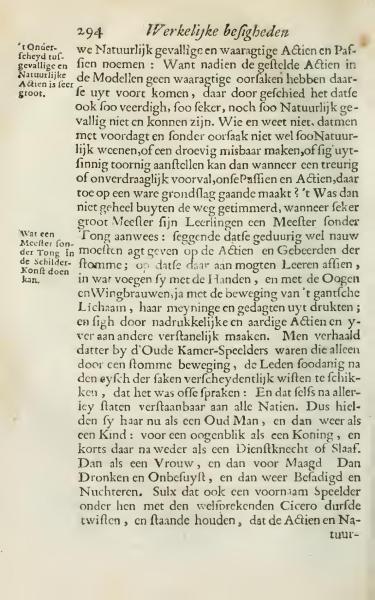True Engagements
We call truly graceful and genuine Actions and Passions: Since the set Actions in the Models do not have genuine causes from which they arise, it happens that they cannot be equally skillful, as certain, nor as naturally graceful. Is it not known that one cannot naturally weep without reason, or make a sorrowful lament, or behave wildly angry, unless a sad or intolerable event, our Passions and Actions, fundamentally compels it? It was not entirely inappropriate when a certain great Master taught his students and Master without Tongue: saying that they must always pay close attention to the Actions and Gestures of the mute; so they could learn from them, in what manner they could express their opinions and thoughts with their Hands, Eyes, and Eyebrows, indeed with the movement of their entire Body; and make themselves understood by others through emphatic and pleasing Actions and Zeal. It is said that among the Old Theater Players, there were those who, through a mute gesture, arranged their Limbs in such diverse ways as required by the matters, that it was as if they spoke: And that this was understandable to all Nations regardless of differences. Thus they presented themselves now as an Old Man, and then again as a Child; for a moment as a King, and shortly thereafter again as a Servant or Slave. Then as a Woman, and then as a Maiden. Then Drunk and Reckless, and then again Sensible and Sober. So much so that a prominent Player among them dared to challenge the eloquent Cicero, maintaining that the Actions and Nature-
The text discusses how truly graceful and genuine actions cannot arise without genuine causes, stressing the importance of natural expression in art. A master teaches students to observe mute gestures to understand and convey emotions effectively through body movements. The text concludes by highlighting the universal understanding of gestures across different cultures and situations.
